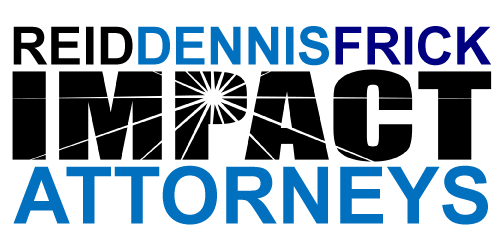Commercial Landlord-Tenant Disputes
Commercial lease disputes vary from simple to complex. Probably the most common and simple is a tenant’s failure to pay rent as agreed. In Texas, a commercial landlord usually can lockout a tenant who has not paid its rent, but must provide an address where the tenant can obtain a key upon payment of the delinquent rent. Occasionally, a landlord will make a mistake, leading to a claim for wrongful lockout.
Many commercial leases are “triple net’ leases which require the tenant to pay taxes, insurance, and maintenance in addition to rent. Disputes can arise when annual adjustments or bill-backs exceed what the tenant anticipated. In retail centers, conflicts sometimes arise between “exclusivity” and “use” clauses in lease agreements with separate tenants. Parking disputes between tenants sharing the same parking lot also may arise.
Occasionally, problems between a landlord and its lender, insurer, or ground lessor may adversely affect a tenant’s rights under its lease. Local government ordinances and zoning can also impact the commercial landlord-tenant relationship. Whether you are a landlord, property manager, or tenant, our real estate attorneys can help you understand your lease terms and resolve your lease dispute.
Casualty Losses
Casualty losses and damage to property can be insured against. Relatively recent innovations like “master” or “blanket” insurance programs can substantially reduce the cost, but have risks that accompany their benefits. While commercial tenants should always carry their own insurance, many “mom and pop” shops do not, mistakenly relying on their landlord to protect them if a loss outside of the tenant’s control occurs. Changes in ownership or management sometimes create gaps in coverage which seem to attract such losses. Depending upon the language of your lease, serious casualty losses can sometimes lead to claims of constructive eviction. Any time you experience a significant casualty loss or damage to your property, you need to consult an attorney to advise you of your rights under your lease and under your insurance policies.
Change in Ownership
A change in ownership can lead to disputes between new owners and existing tenants. Such a change may occur as a result of sale, foreclosure, or bankruptcy. An unrecorded lease may not be binding upon a purchaser. Executory contracts like leases are often rejected by a bankrupt debtor if the terms are no longer favorable. Banks and other lenders generally have a security interest that may be superior or subordinate to subsequent lease agreements. New owners frequently bring in their own property management, insurers, and maintenance vendors. Conduct previously tolerated may no longer be acceptable to new management. Whether you are a new owner or commercial tenant, if a change in ownership has created friction in your leasing arrangement, one of our attorneys can explain your rights and options and help protect your interests in any ensuing litigation.
Multi-Unit Residential Properties
With the recent apartment complex building boom in North Texas, many landlords from out of state are acquiring multi-unit residential properties in Texas for the first time. It is important that your onsite management team understands your rights and obligations under Texas law. Except in unusual circumstances, it is generally not cost-effective to retain a lawyer for every eviction or for every small claims case that may be filed by a disgruntled tenant. Fortunately, Texas law permits non-lawyer representatives to appear on your behalf in our justice of the peace courts where most such disputes are resolved. Our attorneys can explain the nuances of Texas law, help train your management team, and provide suitable forms for common problems like evictions for non-payment. We can create step-by-step “how to” guides to aid you or your representative in a variety of situations to minimize costly mistakes and ensure that your legal rights are protected.
Particular Types of Landlord-Tenant Disputes
The litigation attorneys at Reid & Dennis are experienced with a wide range of landlord-tenant disputes, including:
- Failure to timely pay rent
- Wrongful lockouts
- Breaches of commercial lease
- Constructive eviction
- “Triple net” bill-back and estimates
- Disputes involving taxes
- Maintenance complaints
- Space relocation disputes
- Enforcement of exclusivity provisions
- Conflicts involving permitted use clauses
- Disagreements between tenants
- Disputes between landlords and property managers
- Insurance coverage issues
- Subrogation disputes
While our firm does handle many litigation matters relating to residential properties, we do not routinely represent tenants in residential landlord-tenant disputes as they can usually be handled more efficiently in justice of the peace court.
Our litigation attorneys can tell you whether we have the experience and background to help you with your real estate litigation or arbitration matter.



